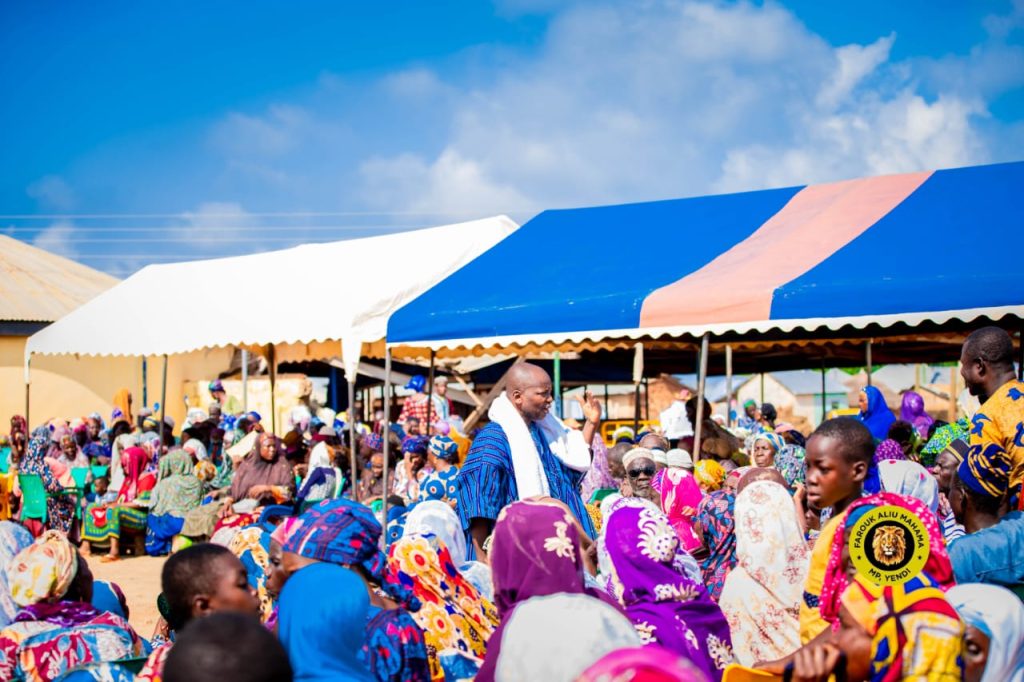
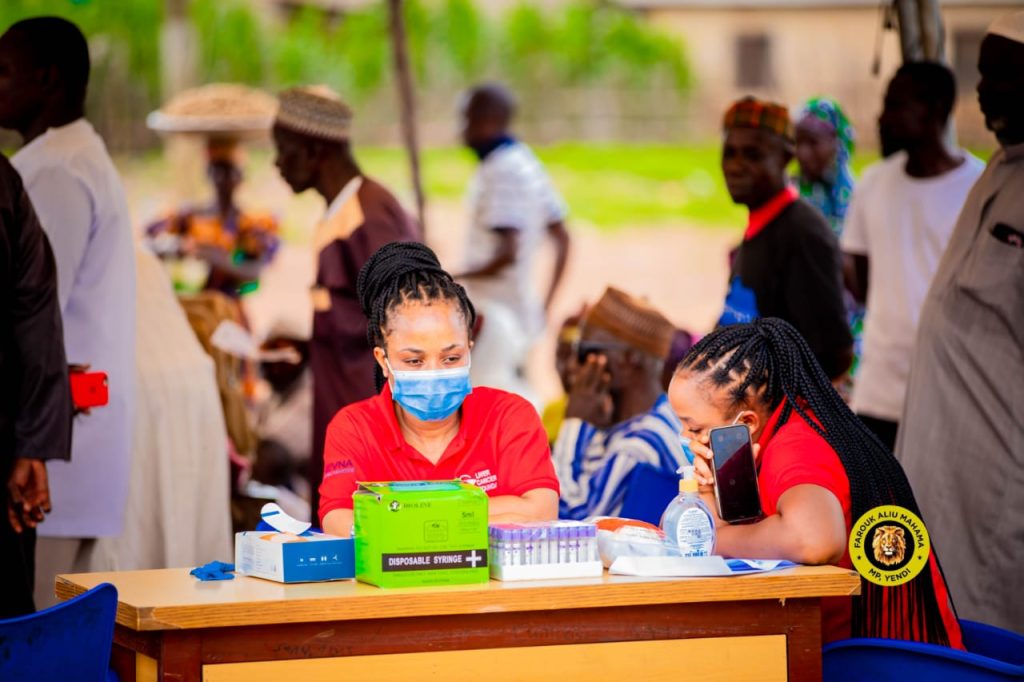
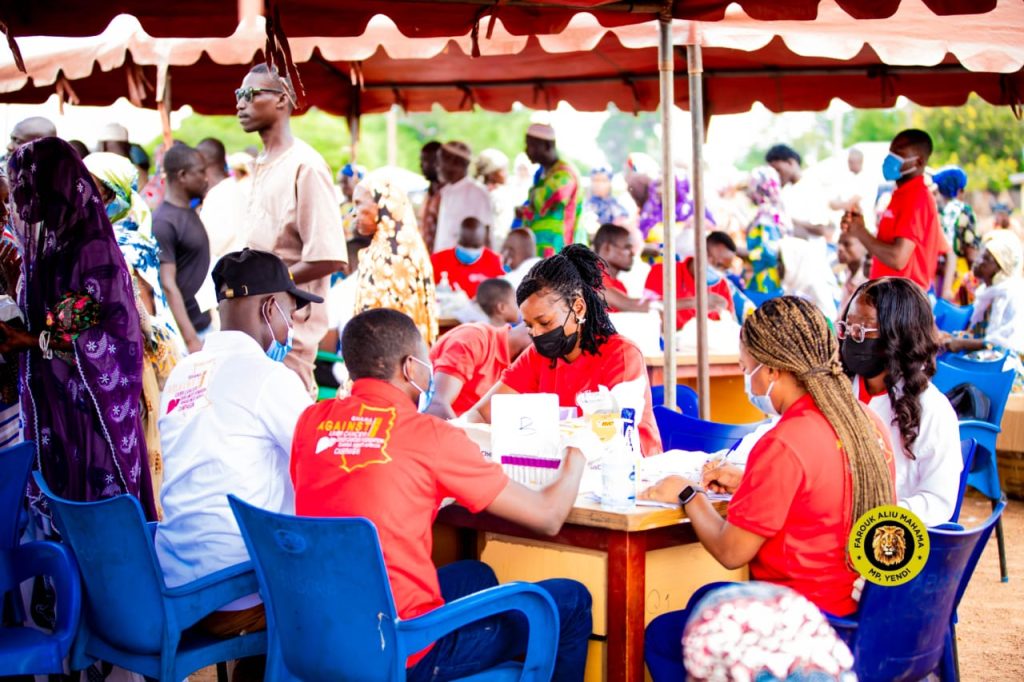
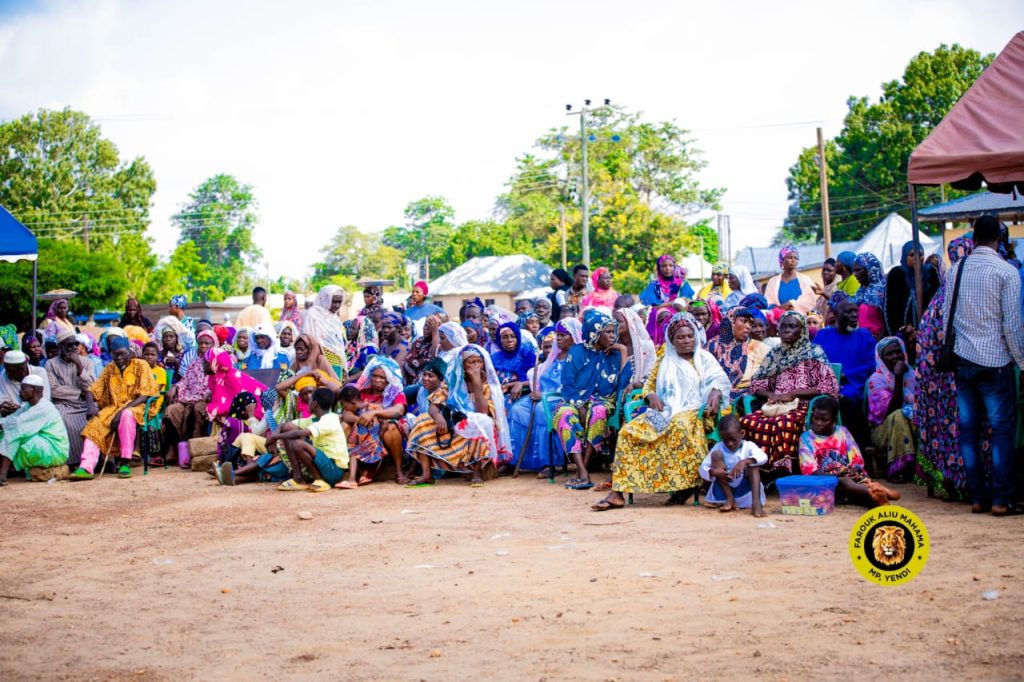
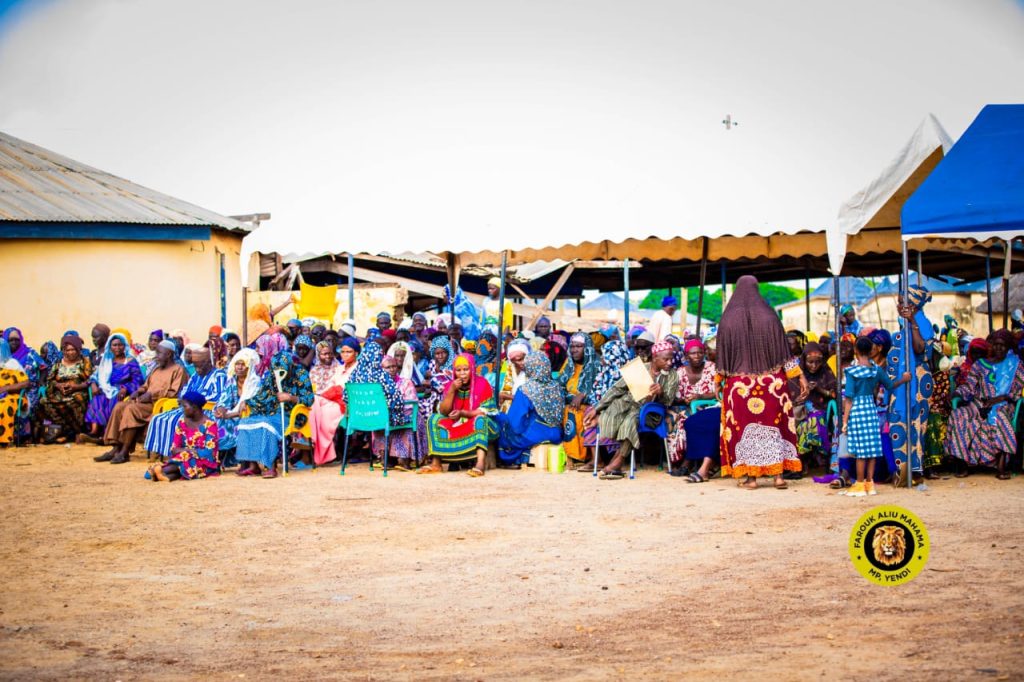
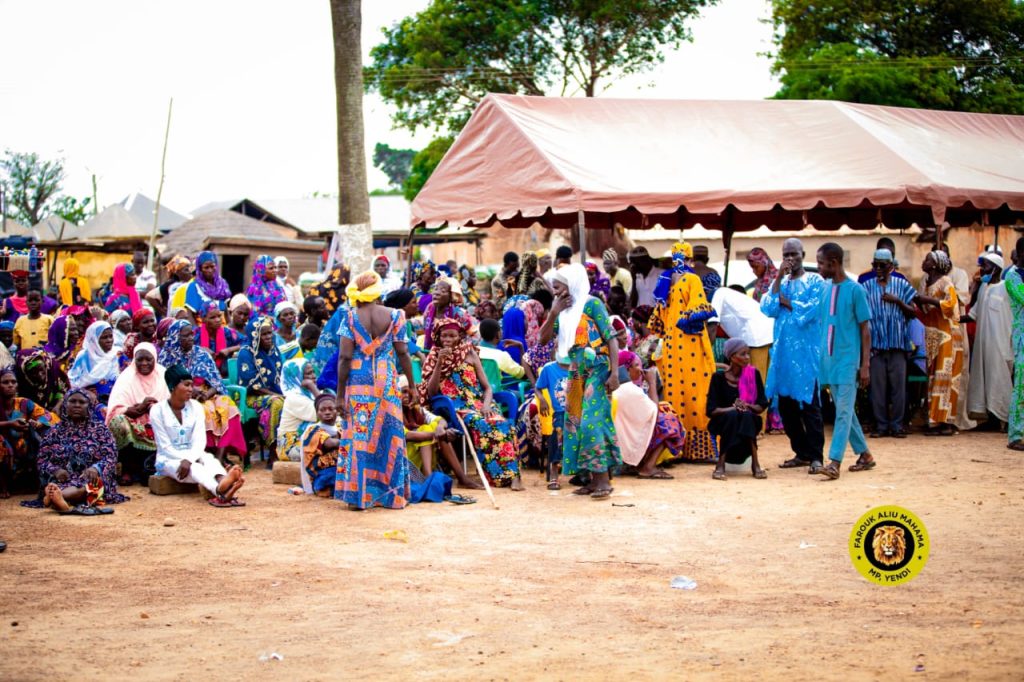
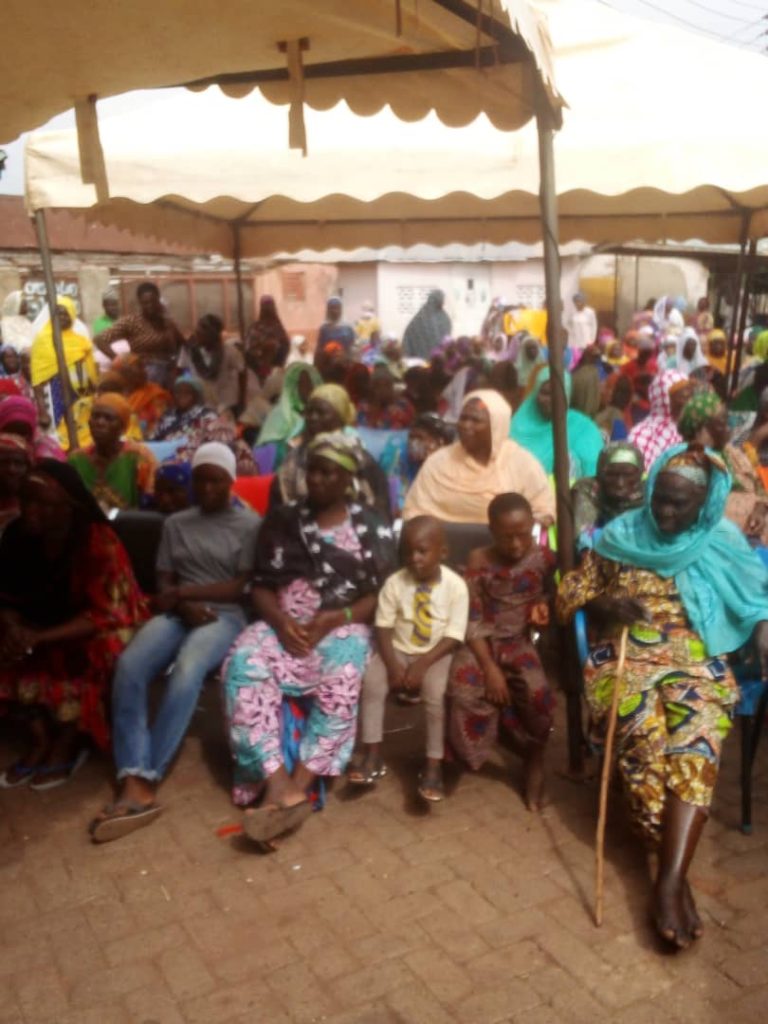

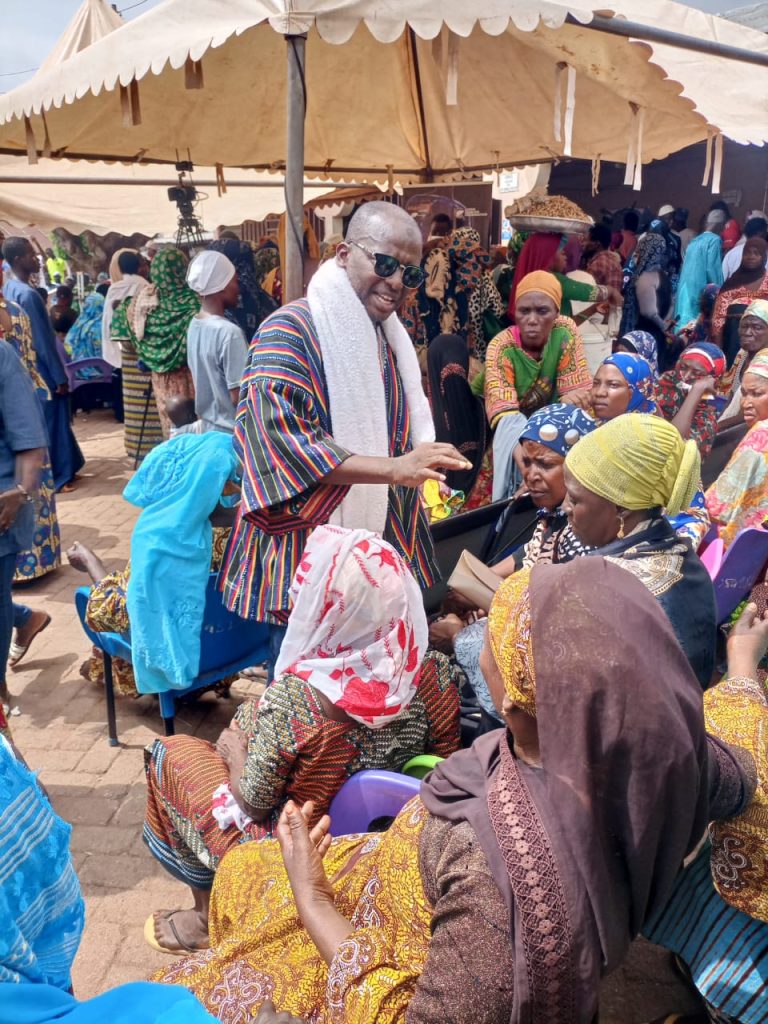
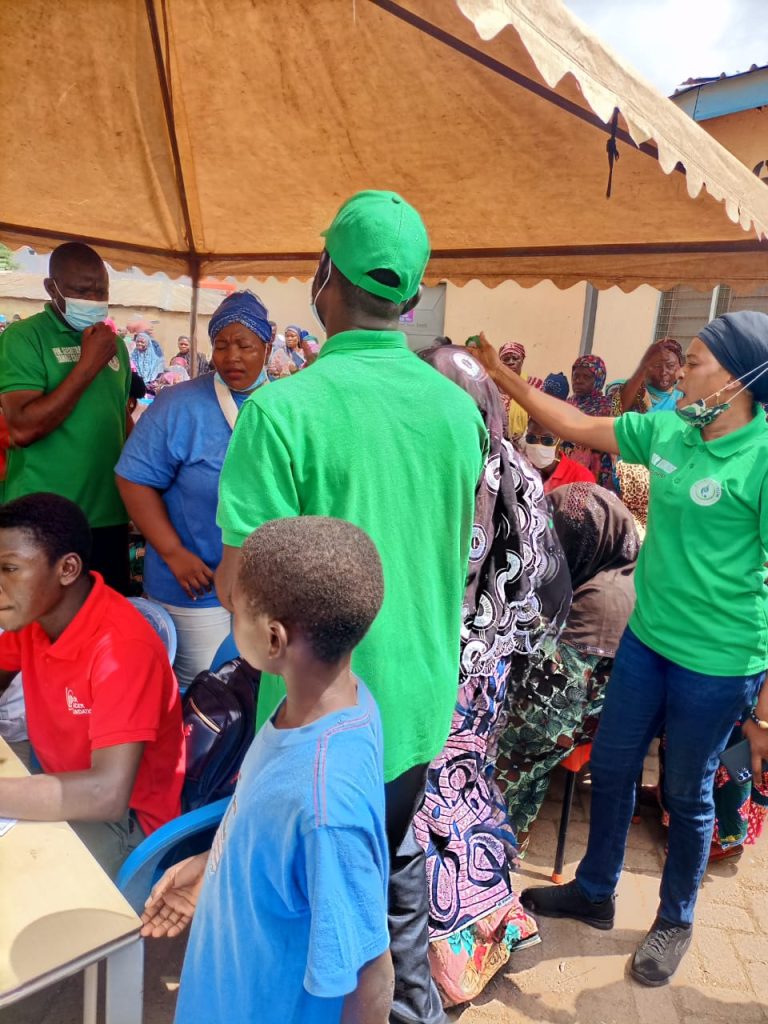
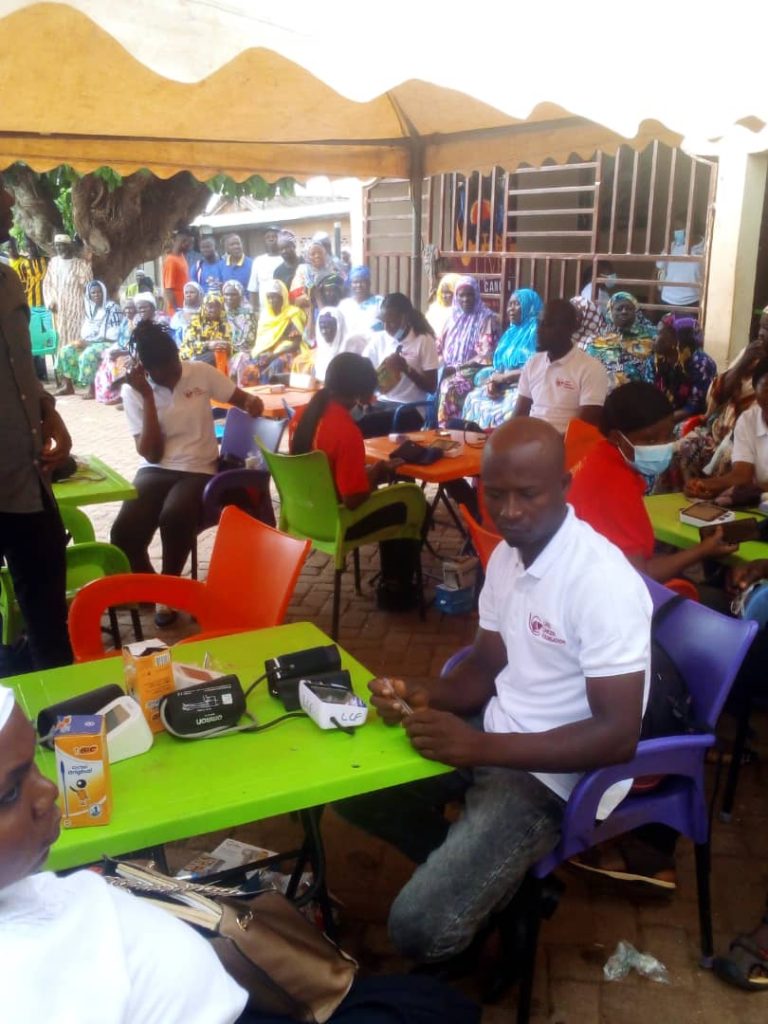
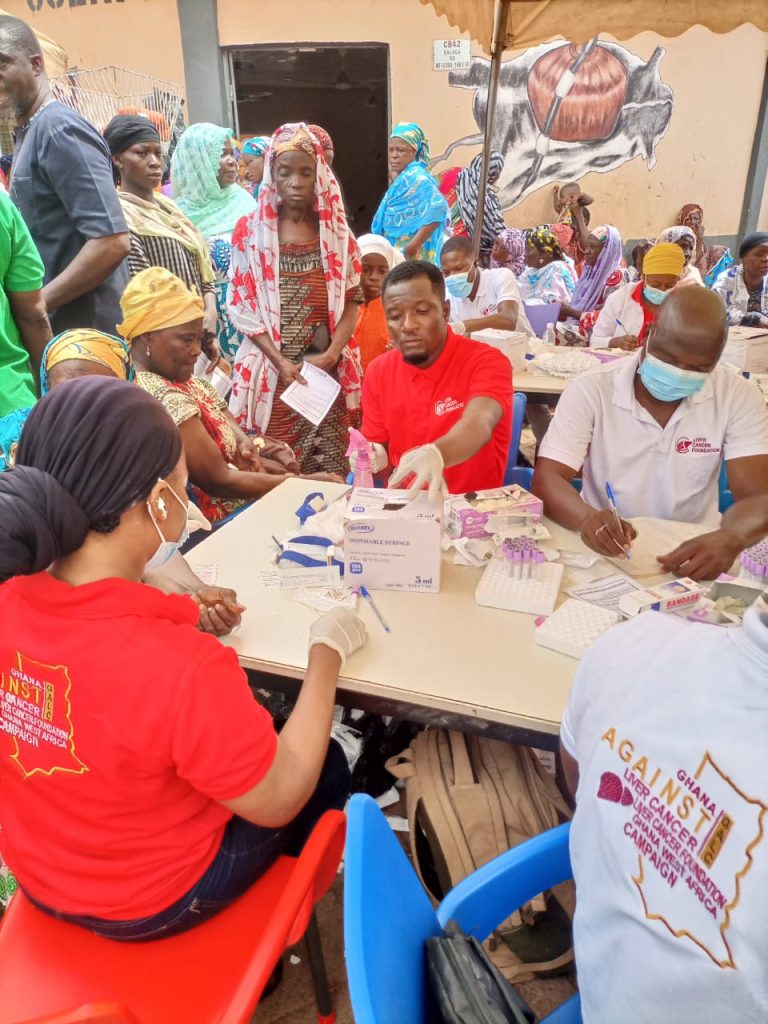
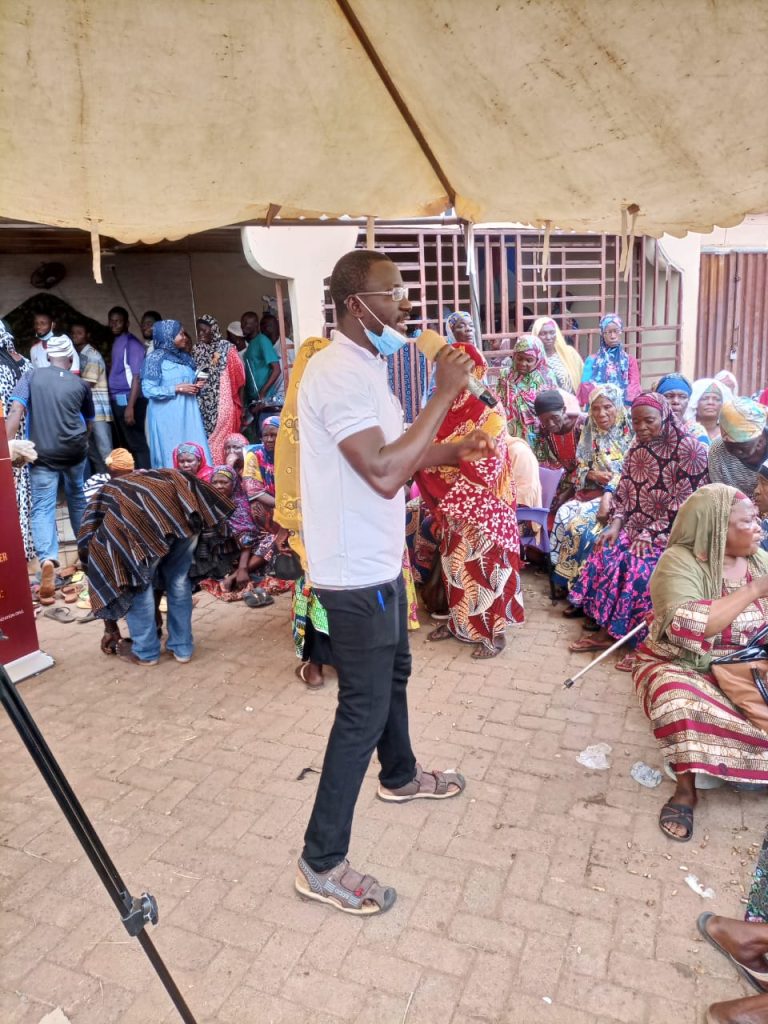
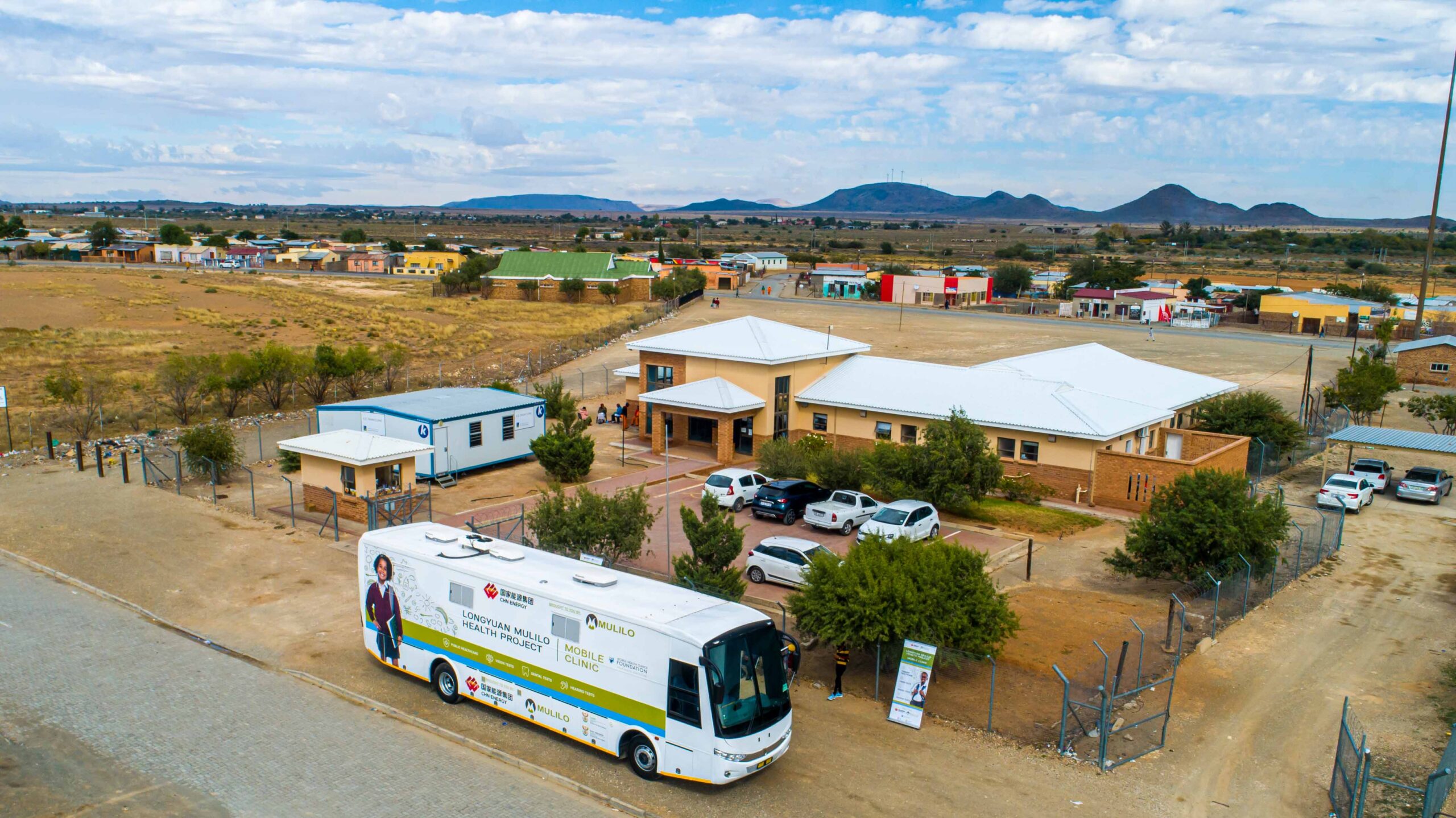
Having pioneered the development of online trading and digital investment solutions 22 years ago, global fintech company Admirals is today considered a market-leading provider of an innovative range of online trading and investment products.
The Admirals suite of products includes leveraged Contracts for Difference (CFD) products in the over-the-counter market, including Forex, indices, commodities, digital currencies, stocks, and ETFs, as well as listed instruments to retail, professional, and institutional clients.
The company is steadily increasing its footprint in Africa, having opened its first African office in Cape Town, South Africa in July 2022, followed by the launch of its Lagos office in Nigeria in February this year.
Admirals currently serves clients across 176 countries world-wide.
With a physical presence in 18 countries across developed and emerging economies, Admirals is deeply committed to bridging the financial inclusion gap that spans across continents, economies, and societies.
“Financial freedom is a universal objective,” says Boriss Gubaidulin, Admirals Africa Director. “By offering simplified retail trading and investing processes and solutions, supported by accessible financial literacy and education material, we aim to encourage greater access to global financial markets in a transparent, secure, and sustainable manner,” he says.
“As we continue to expand our footprint, we are constantly witnessing the many social, economic, and environmental challenges affecting societies the world over,” he continues. “As a reputable neobroker with a growing base of savvy and socially conscious clients, Admirals is actively living its commitment as an ethical, and socially and environmentally responsible global citizen to drive the betterment of communities in which we operate,” Gubaidulin says.
In 2020, Admirals developed and rolled out its global environmental, social and governance (ESG) program which directs its strategic corporate social investment initiatives. These projects range from tree planting and reforestation, clean ocean initiatives, investing in renewable energy and scarce resource management projects, recycling, and the development of better living conditions for local communities.
Admirals’ ESG philosophy
Admirals has been at the industry forefront by engraining the principles of ESG as part of its strategic business imperatives. Incidentally, Admirals has taken on a carbon-neutral status in 2020, which is firmly integrated into the Admirals overall business model.
The company engaged a global third-party rating agency, ClimatePartner, to verify its carbon footprint, as well as certify the CSI projects in which Admirals is involved.
Here on the African continent, Admirals has been involved with two sustainable water management and renewable energy initiatives in Sierra Leone and South Africa respectively.
Project 1: Clean drinking water in Kono, Sierra Leone
Sierra Leone is a largely rural country where households typically use wood fuel on inefficient three-stone fires to purify their drinking, cleaning, and washing water. This process results in the release of greenhouse gas emissions from the combustion of wood.
However, these emissions can be avoided by using efficient borehole technology that does not require fuel to supply clean water.
Admirals’ support is helping communities in the Kono region to restore 57 wells. In cooperation with the local population, damaged wells are repaired and regularly maintained, which secures the regional water supply. The availability of clean drinking water eliminates the need to boil water, saving an average of 10,000 tonnes of CO2 emissions per year.
Not only does this initiative contribute to climate action but it also has a major social impact. In these rural areas, water sources are often located far from residential areas. Women and children, who are primarily responsible for fetching water, may have to travel long distances, sometimes several kilometres, to access water. This not only consumes their time and energy but also poses safety risks, especially for women and girls.
Project 2: Investing in the future of South Africa’s sustainable clean energy generation
South Africa has been in the grip of a severe energy supply shortage in recent years, and every effort possible is being made to generate additional electricity capacity. Admirals has heeded the call for investors to help drive clean energy projects by pledging its support to one of the country’s largest wind projects.
Close to the rural town of De Aar in South Africa, 96 wind turbines have been producing an average of 439,600 MWh of electricity per year since 2017, which is being fed into the South African grid. The aim of the project is to harness the region’s wind energy potential to balance its energy needs in a sustainable way. This diversifies the power supply and improves energy security in regions that are frequently affected by power shortages and outages.
The share of electricity now supplied by the wind farm would have otherwise been generated by fossil fuels. The wind power project avoids about 433,920 tonnes of CO2 emissions per year, which makes an important contribution to a clean energy supply and sustainable development with respect to the UN Sustainable Development Goals (SDGs).
In addition to the environmental benefits, the project assists the local community by creating jobs and improving the access to healthcare through its Mobile Health Clinic. Offering primary healthcare, dental, eye care services, more than 36 000 residents and members from nearby communities have been screened and serviced by this clinic.
The project supports local football clubs by funding equipment, events, travel and much more. It also provides financial funds to the Richmond Untied Ladies Football Club, the only female club in De Aar playing in the premier league.
The project supports a math enrichment programme for pupils in 10 primary and 4 high schools to encourage interest in this subject. Three Early Childhood Development Centres were renovated to support about 155 children between 2 and 6. About 108 students are currently on the project’s bursary scheme that covers tuition, accommodation, books, food, and laptops.
“Contributing meaningfully to society is one of the cornerstones of our business,” Gubaidulin says. “Admirals considers the environment, our actions, and the influence we can create as global leaders. We are deeply committed to leaving a legacy through shared success and by creating flourishing communities across the globe,” he concludes.
——————————————————————————————————————————————
Admirals Group AS
Admirals Group AS is a global growing FinTech company, offering a wide range of products and services worldwide, meeting people’s needs and making personal financial management easy-to-use, affordable and secure through its regulated investment firms.
The online investment service providers that are owned by Admirals Group AS, are authorized to offer their clients with the ability to trade Forex, and CFDs on, inter alia, indices, metals, energies, stocks, bonds and digital currencies, but also to invest in Stocks and ETFs (product offering may vary depending on each investment service provider’s license obligations and the client’s country of residence).
Over the years, Admirals has received internationally recognized and respected awards and recognitions, including the ‘Best Broker of 2022’ awards from both Area de Inversion and Traders.com, as well as the Traders.com award for ‘Best Financial analyst of 2022’.
Since founded in 2001, Admirals continues to experience worldwide growth and evolution and is committed to providing its clients around the globe with advanced trading tools, access to financial security and various customer care policies. Admirals is licensed in the Seychelles, UK, Cyprus, South Africa, Australia, Jordan, Canada and Kenya.
For more information about Admirals visit admirals.com.
Trading involves risks.
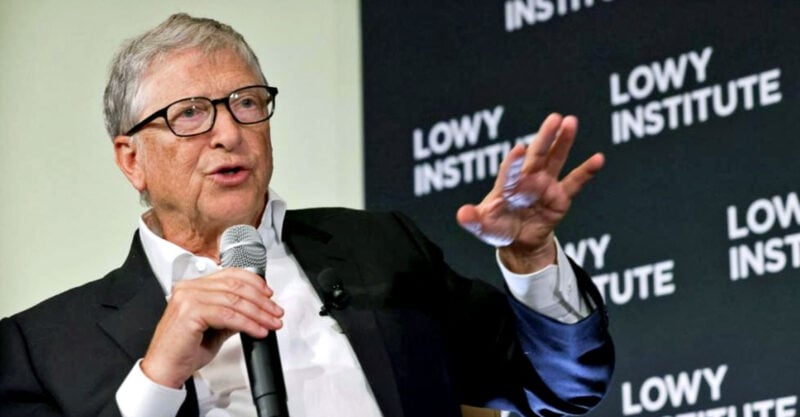
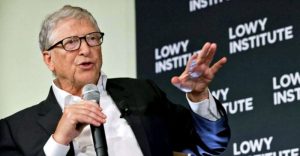
Bill Gates, long recognized as one of the world’s foremost proponents of vaccines, raised some eyebrows at a recent talk in Australia when he admitted there are “problems” with current COVID-19 vaccines.
By
Bill Gates, long recognized as one of the world’s foremost proponents of vaccines, raised some eyebrows at a recent talk in Australia when he admitted there are “problems” with current COVID-19 vaccines.
Speaking at Australia’s Lowy Institute as part of a talk entitled “Preparing for Global Challenges: In Conversation with Bill Gates,” the Microsoft founder made the following admission:
“We also need to fix the three problems of [COVID-19] vaccines. The current vaccines are not infection-blocking. They’re not broad, so when new variants come up you lose protection, and they have very short duration, particularly in the people who matter, which are old people.”
Such statements came as a surprise to some in light of Gates’ longstanding support of — and investments in — vaccine manufacturers and organizations promoting global vaccination. However, they were the latest in a string of developments in recent weeks that have increasingly called the COVID-19 vaccines, in particular, into question.
‘This is a grift’: Gates’ investments in mRNA vaccines reveal ‘conflict of interest’
Several analysts and commentators were critical of Gates — but not due to disagreement with the statements he made in Australia. Instead, they argued that he had previously heavily invested in mRNA vaccines at the same time he encouraged a global COVID-19 vaccination campaign and supported mandatory vaccination.
Speaking Jan. 25 on The Hill TV’s “Rising,” co-hosts Briahna Joy Gray and Robby Soave addressed Gates’ statements. Soave initially agreed at face value with Gates’ criticism of current mRNA vaccines, saying:
“He really nails it on the issues that we’re having: the short duration of protection, not a significant discernable impact on the transmission of cases … not a massive benefit for a lot of otherwise healthy and younger people.”
However, Soave — who on Jan. 19 revealed “Facebook files” indicating the CDC significantly influenced content moderation and censorship on the platform pertaining to COVID-19 vaccines — then pointed out Gates’ prior investments that contributed to the development of mRNA vaccine technology.
Soave said, “Bill Gates was a major proponent of mRNA technology … he was an investor in BioNTech, which developed the mRNA vaccine for Pfizer.”
“We were just doing some digging,” continued Soave, “[and] we saw that he sold a lot of those shares at … how much profit was that?”
“10x,” replied Gray. “He invested $55 million in BioNTech back in 2019 and it’s now worth north of $550 million. He sold some stock … at the end of last year, I believe it was, with the share price over $300, which represented a huge gain for him over when he invested.”
Soave then unleashed critical comments directed at Gates:
“Let’s follow that trajectory: [Gates] invests heavily in BioNTech, ‘mRNA vaccines are great, this is the future,’ he talks about the vaccine timeline and how we can develop it faster, ‘we might have to cut some corners on safety’ … All in … sells it … makes a huge amount of money … but now it’s ‘yeah, it’s okay, it could be better, but what we really need is this breath spray.’”
Soave was referring to a statement Gates made during his recent talk in Australia, immediately prior to his remarks regarding the mRNA vaccines, where he said:
“We think we can also have, very early in an epidemic, a thing that you can inhale that will mean that you can’t be infected, a blocker, an inhaled blocker.”
Gray raised the issue of conflicts of interest between individuals such as Gates who hold significant positions with drug and vaccine manufacturers, and the federal government’s spending of large sums of taxpayer money to purchase these products. She said:
“This is a grift. These companies are extracting money, taxpayer money as it were, to pay for medical treatments that are not indicated by medical professionals and are less useful than what we already have.
“At the same time, the Biden administration is opening its doors, revolving doors, to people from these various industries like Jeff Zients, who is the new chief of staff for Joe Biden … who has spent his entire career at the kinds of companies, investing in the kinds of companies, that have been overcharging the government for Medicare and Medicaid payments and exact kinds of overpayments. It is an enormous grift and one that is incredibly common.”
Zients was formerly the Biden administration’s “COVID czar” and publicly pushed for universal vaccination.
Soave then said that Gates’ statements, and the broader issue of conflicts of interest between drug and vaccine proponents and the federal government, give credence to the assertions long made by “anti-vaxxers and the like.” He said:
“For there not to be more interrogation of his conflict of interest here by the mainstream is deeply disturbing, and for people who have been skeptical of this aspect of Pfizer and the drug development around COVID and who have been shot down in the media as kooks, anti-vaxxers and the like, I frankly think that this issue of pharmaceutical corruption and people pushing various interventions, having an investment in profit, should have been an issue that the left was leading on.
“We have to be more transparent about the fact that people who are having input in what the government policy is going to be, what’s going to be required people, the Biden administration tried to require people to get this, shouldn’t it be known at least when there are hundreds of millions of dollars of financial interests at stake for the people advising this? And their tune changes as it follows the money!”
Investigative journalist Jordan Schachtel also had scathing remarks following Gates’ statements in Australia, writing on his blog:
“Microsoft founder Bill Gates, who served as one of the architects of Covid hysteria and had more of an impact than any other individual on the disastrous global pandemic policies, has finally acknowledged that the mRNA shots he’s been promoting for two years are nothing more than expired pharma junk.
“Translation: Gates admits that the shots are impossible to align with rapidly developing variants, they expire in lighting speed, and they don’t stop transmission. And they don’t work for the only at-risk portion of the population.”
Schachtel called this “an incredible reversal from the man who once advertised the shots as the cure to the coronavirus,” drawing upon Gates’ previous statement: “everyone who takes the vaccine is not just protecting themselves but reducing their transmission to other people and allowing society to get back to normal.”
In 2021, Gates described the mRNA vaccines as “magic,” saying they would be a “game changer” in the next five years.
Gates warns about ‘next pandemic,’ praises lockdowns, calls for more pandemic simulations
As reported by the Daily Mail Jan. 23, Gates’ talk in Australia was notable for some additional statements he made.
Gates “called for greater global cooperation using the COVID-19 pandemic as an example of how countries could improve on their response if they worked together,” arguing that “political leaders needed to set aside their differences and work together to prepare for the next virus.”
He also praised Australia’s strict lockdown policies, saying:
“Some of the things that stand out are that Australia and about seven other countries did population scale diagnostics early on and had quarantine policies.
“That meant you kept the level of infection low in that first year when there were no vaccines.”
Gates also called for more “pandemic simulations” to assist world leaders in dealing with “future pandemics.” He said:
“The one thing that still hangs in the balance is will we have the global capacity and at the regional and country levels that would mean that when an (infectious disease) threat comes up we act in such a way that it doesn’t go global.
“We need to be doing every five years a comprehensive exercise at both country and regional levels of pandemic preparedness and you need a global group that’s scoring everybody.”
As part of such preparedness, Gates called upon countries to have “standby tools,” including vaccines, in place for the next pandemic:
“So there’s a class that’s got measles in it, a class of flu, a class of coronavirus, and a fourth class, all of which we need to have standby tools, both antivirals and vaccines that can deal with those. It’s very doable. So on the tools front, we can be far more prepared.”
Schachtel noted that Gates was a sponsor of Event 201, a simulation conducted Oct. 18, 2019, which “predicted” a global coronavirus pandemic. One of the sponsors of Event 201 was the Bill and Melinda Gates Foundation (BMGF).
The BMGF is a partner of Gavi, The Vaccine Alliance and holds a seat on its board. In turn, Gavi closely collaborates with the ID2020 Alliance, a strong proponent of “vaccine passports,” as previously reported by The Defender. Microsoft and the BMGF are founding members of ID2020.
According to the same report by The Defender, the BMGF in September 2022 pledged $1.27 billion in support of “global health and development projects.”
And as previously reported by The Defender, the BMGF previously committed, in June 2020, $750 million toward the development of the AstraZeneca vaccine at Oxford University, and conditional funding of $150 million to the Serum Institute of India — the world’s largest vaccine manufacturer by number of doses produced and sold.
The Serum Institute also received a $4 million grant from the BMGF in October 2020 to support research and development as part of the COVID-19 response, while in August 2020, the Serum Institute, in partnership with the BMGF and Gavi, agreed to produce up to 100 million doses of COVID-19 vaccines for low- and middle-income countries.
In a posting on his official blog in December 2020, Gates wrote that his foundation “took on some of the financial risk” for the vaccine, so that if the Oxford-AstraZeneca vaccine was not approved, the Serum Institute wouldn’t “have to take a full loss.”
Gates’ remarks latest in a string of negative press for COVID, mRNA vaccines
Gates’ remarks in Australia — and the attention they received from the press — represent the latest in a series of less-than-flattering media portrayals about COVID-19 and mRNA vaccines in recent weeks.
On Jan. 22, the Wall Street Journal published a highly critical editorial regarding the FDA’s non-disclosure of data pertaining to the efficacy of the COVID-19 bivalent boosters. Allysia Finley, a member of the newspaper’s editorial board, wrote:
“Federal agencies took the unprecedented step of ordering vaccine makers to produce them and recommending them without data supporting their safety or efficacy.”
She also accused vaccine makers of “deceptive advertising.”
Source:( The Defender/Children’s Health Defense News)

Titanium is a strong, resilient and relatively light metal. Its properties have also been well studied; scientists know a great deal about it. All of this makes it the ideal base for fashioning artificial limbs – particularly knees and hips – and teeth. It is less likely than other metals to rust and, as research has shown, it is more compatible with the human body than, for instance, stainless steels and cobalt based materials.
But there’s a major problem: titanium is not cheap. Precise data is hard to come by, but a conservative average cost of titanium-based prostheses is between US$3,000 and US$10,000. That’s expensive for most people, and prohibitively so for the majority of people in middle- and low-income countries like those in Africa.
Again, data is scarce, but a recent study about sub-Saharan Africa (excluding South Africa, which has better facilities for such procedures than most other countries on the continent) found that 606 hip and 763 knee replacements were performed between 2009 and 2018. Many more people in the region likely need replacements but will go without because they simply can’t afford the procedure. And, with the global population of those aged 65 and older rising, the demand for implants is set to increase; this age group is prone to diseases like osteoporosis and osteoarthritis.
That’s why we are working to produce cheaper titanium based materials that can be used to make affordable limbs. In our latest research my colleagues and I experimented with metallic elements like titanium, aluminium, iron and vanadium to create new alloys. We tested each in a solution that mimics humans’ bodily fluids.
Our mission is to share knowledge and inform decisions.
About us
We found that the new alloys showed negligible rust in the solution. The new alloys, which are slightly cheaper than the commercial grade alloy, performed as well as it does – and one alloy even outperformed it.
Pure titanium vs titanium alloys
The biggest benefit of titanium for making artificial hips, knees and teeth is that it’s safe for use in the human body because it doesn’t degrade easily when exposed to body fluids.
However, when titanium is used in its pure form, it lacks the necessary strength and wear resistance required to cope with the rigours of human activity.
That’s why other metallic elements are added. Examples include aluminium, vanadium, zirconium, tantalum, niobium, molybdenum and iron. Scientists use these and other elements to create new alloys that are stronger and resistant to wear.
Currently the most utilised alloy in artificial hips and knees is Ti-6Al-4V: 90% titanium, 6% aluminium and 4% vanadium. Though it is effective, it has two major drawbacks. The first is the cost. Vanadium is nearly as expensive as titanium. The second is toxicity: aluminium and vanadium are toxic in large quantities. When the material degrades through corrosion, ions are released into the body and can cause chronic inflammation. These ions have also been linked to Alzheimer’s disease.
For this study we reduced the amount of aluminium and vanadium that are added to Ti-6Al-4V to make new titanium based materials. We also excluded aluminium and replaced vanadium fully with iron to make another, cheaper, titanium based material.
Read more: South Africa is one step closer to processed titanium alloys
Then we investigated whether these new implant materials would degrade quickly when immersed in the human body fluid. We used a solution called Hanks Balanced Salt Solution which contains the main ingredients in the human body fluid. We compared the new titanium materials with the commercial grade Ti-6Al-4V that is commonly used.
The findings
Almost all the new alloys performed better than Ti-6Al-4V in the salt solution. Those that fared worse in the solution were still on a par with Ti-6Al-4V. And none of the new alloys degraded more than 0.13 millimetres per year, the maximum permissible degradation rate allowed for implant material.
The alloys without vanadium and aluminium performed well, meaning they are potentially safer than Ti-6Al-4V because they have lower toxicity levels.
And, crucially, the new alloys are cheaper to produce than Ti-6Al-4V. We are not working on the actual manufacturing of artificial limbs – this research focuses on the chemical composition of the alloys. So we can’t say what the ultimate cost-saving would be if these alloys were to be used. But, merely by altering the starting materials as we did, replacing aluminium and vanadium fully or partially with iron, up to 10% cost savings can be achieved.
A promising step
From 2030 and beyond, more older adults will reside in developing countries such as those across the African continent. As this population increases, the demand for artificial limbs may also rise. That’s why identifying affordable, safe materials is so important. Our research is a promising step towards meeting that goal.
Credit:(“The Conversation,Africa” Edition )